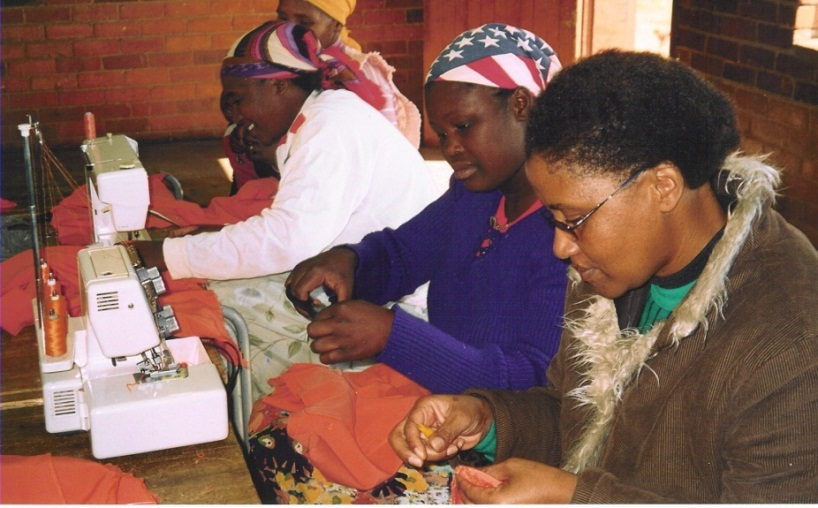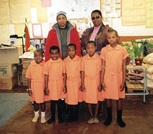
Lastly, coordinators enter into partnerships with the clients themselves, working with them on self-help and income generating projects such as sewing and gardening. Here are some examples:
Fisani Njokwe, Sept 2008: Soup Kitchen for Delinquent Children
On 13.09.08 I and other members had a meeting at Thubelile market. We discussed crime committed by children. We decided to set up a soup kitchen because it became clear that poverty and hunger was turning children to crime.
The perpetrators of housebreaking have been children aged 11-16 years. They break into houses merely to steal food from pots and refrigerators. This shows that the main reason for these crimes is hunger.
We came to an agreement with my employers that we will cook and make soup for the poor children and the orphans every Tuesday and Thursday. On 16.09.08 I started the project. When these poor children return from school they receive their share. Everybody including the parents are very happy with this arrangement and thankful for this opportunity for their children.
(Right) Coordinator Lucky Mkhize with children in their new school uniforms. Lucky bought the materials herself, borrowed sewing machines and taught the children's mothers how to make the uniforms. 
Khanyi Singh, Mar-April 2008: Poverty Relief for Unemployed Victims of Domestic Violence
We have a support group for abused women who are unemployed. I have planned to take the group for sewing lessons in Northdale church in my area where I live, to sew bedspreads, duvets, sheets and some other fancy bed linen for no charge at all. There is no charge for the material either. They will take their sewing home and sell it to have their own incomes. This will be done on Saturdays.
Zandile Khanyile, April 2008: Teaching People Basic Skills for Community Home-Based Care
I am involved in home-based care project that was initiated by the New Hanover Support Centre and Child and Family Welfare Society. The reason for starting this was because members of our support group for people living with HIV and AIDS want to keep themselves busy.
I have trained them in domestic abuse, children’s rights and rape and they refer so many cases to the centre which they encounter when visiting the sick people in their homes. There has been so much progress; they now have their own vegetable garden and they give these to sick people.
in domestic abuse, children’s rights and rape and they refer so many cases to the centre which they encounter when visiting the sick people in their homes. There has been so much progress; they now have their own vegetable garden and they give these to sick people.
Lima Organization has trained them on nutrition and last month, March 2008, Lifeline trained them in HIV and AIDS counselling. The Department of Health will pay them for a year to provide the home-based care.
Fisani Njokwe, Aug 2008: Bead Work and Gardens
On 13.02.08 I joined the group of people living with HIV and AIDS who met to do bead work and make different kinds of things to sell to alleviate poverty. They also plant different types of vegetables such as carrots, beetroot and potatoes. We did this together.
Our visitors were surprised to see our products, especially the size of our cabbages. We ask any organisation that can help us to assist with fencing for our vegetable garden.